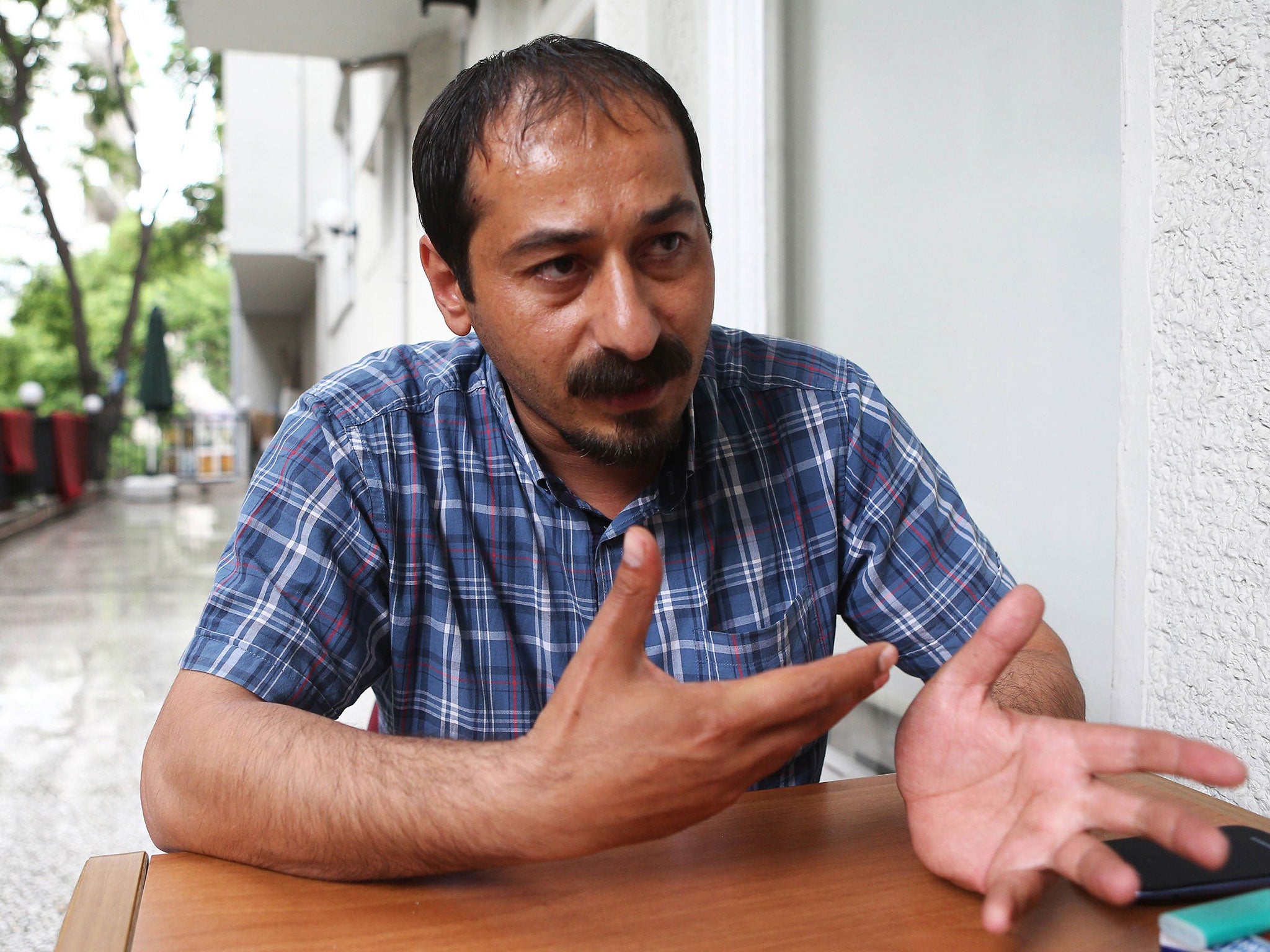Turkey election: A former human-rights activist on why he had to become a candidate for the Kurdish HDP
After his brother was killed during anti-government protests, Mustafa Sarisuluk took action

Your support helps us to tell the story
From reproductive rights to climate change to Big Tech, The Independent is on the ground when the story is developing. Whether it's investigating the financials of Elon Musk's pro-Trump PAC or producing our latest documentary, 'The A Word', which shines a light on the American women fighting for reproductive rights, we know how important it is to parse out the facts from the messaging.
At such a critical moment in US history, we need reporters on the ground. Your donation allows us to keep sending journalists to speak to both sides of the story.
The Independent is trusted by Americans across the entire political spectrum. And unlike many other quality news outlets, we choose not to lock Americans out of our reporting and analysis with paywalls. We believe quality journalism should be available to everyone, paid for by those who can afford it.
Your support makes all the difference.For two years, Mustafa Sarisuluk has fought for justice for his brother, who was shot in the head during anti-government protests that shook Turkey to its core. On Sunday, he will see his name on the ballot paper as the country goes to the polls for the second time this year.
The former human-rights activist is a candidate in Ankara for the People’s Democratic Party (HDP), which in June became the first Kurdish party in history to win seats in the Turkish parliament.
The 35-year-old told The Independent that he agreed to stand after a deadly bombing in July triggered the collapse of a ceasefire with the Kurdistan Workers’ Party (PKK), which has fought an insurgency against the Turkish government since 1984. That attack, carried out by Isis in Suruc, killed dozens of pro-Kurdish activists. The PKK blamed the government for the bombing and killed two policemen in retaliation. The state responded with air strikes. The country’s south-east plunged back into a cycle of violence. “I saw that the government declared war against Kurdish people,” Mr Sarisuluk said. “I thought it was my responsibility to become a candidate.”
Mr Sarisuluk, who belongs to the Alevi religious sect, has been embraced by the HDP as part of its bid to attract voters aggrieved by the government, from young leftists and liberals to environmentalists, gay activists and women’s-rights campaigners. The party hopes to persuade the groups to band together again against the ruling Justice and Development Party (AKP) and its leader, the President, Recep Tayyip Erdogan, who has alienated voters by exploiting ethnic, religious and political tensions to try to consolidate his grip on power. It was during the first major challenge to Mr Erdogan’s authority, in the summer of 2013, that Mr Sarisuluk’s 26-year-old brother, Ethem, was killed. Anti-government protests that began in Istanbul spread to Ankara, and Ethem was shot during a scuffle with police. The officer who pulled the trigger – originally sentenced to eight years in prison – was released in September after the sentence was overturned on appeal.
Mr Sarisuluk finds some comfort in his belief that the demonstrations paved the way for the HDP’s success by “building a bridge” between Kurds and other activists. The party won 13 per cent of the national vote in the summer and helped to deprive the ruling party of its majority. “For the first time, different people with different problems united in a common goal against the AKP,” he said.
The July bombing, followed by twin bombing attacks on a peace rally in Ankara this month that killed more than 100 (also blamed on Isis), further stoked tensions that began last year over Kurdish anger at the Turkish state’s reluctance to come to the defence of Kobani during an Isis assault.
Mr Erdogan’s party has sought to tarnish the HDP by binding it with the PKK. But polls suggest the HDP is on course to repeat its success.
Mr Sarisuluk had already faced death threats while campaigning for his brother. His entry into politics has only made things worse. “In my party, they told me to be careful because they may try to attack me or to kill me,” he said. His coping strategy is black humour. Departing for the campaign trail, he said, only half-jokingly: “If I don’t win, come and visit me in jail.”
Join our commenting forum
Join thought-provoking conversations, follow other Independent readers and see their replies
Comments